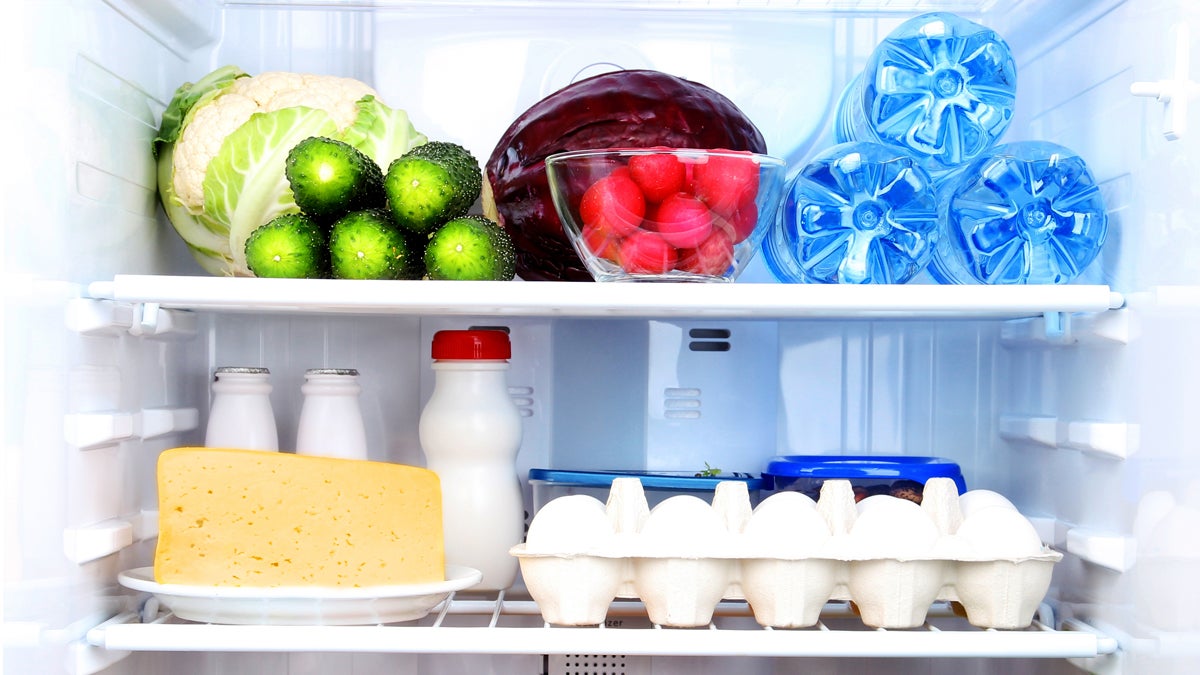How refrigeration changed the way we eat and live
Listen
(Shutterstock Image: http://shutr.bz/1DtXg4L)
Can you imagine your life without access to a refrigerator? How about having an ice box at home that needs to be replenished?
Maybe we should have a refrigeration appreciation month because we so often take the appliance–and the whole concept of artificial cooling–for granted.
In his new book “Chilled: How Refrigeration Changed The World And Might Do So Again,” science writer Tom Jackson describes what our diets would look like without the power of cooling.
“Your fruit basket would be quite empty,” Jackson says. “Even though we don’t necessarily keep all of our fruit in the fridge all year round, it’s all being kept nice and chilled on its journey towards your home. Some of the journeys will have been hundreds if not thousands of miles–and without refrigeration you wouldn’t have any of it.”
What else might we miss? Fish. You’d have to actually live in proximity to bodies of water to get fresh fish. Nowadays, fish is quickly frozen and then defrosted after traveling to your grocery store.
And some dairy would be a different story too.
“Milk can survive quite a long time. Butter would be a different experience,” Jackson says. “It would be quite sloppy.”
Before refrigeration, as we know it, people would use other systems–like burying vegetables in root cellars–to preserve food. Although domestic refrigerators came onto the scene in the early 20th century, Americans mostly used iceboxes into the 1920s, according to Jackson.
By 1937, there were two million units in North America and the number continued to climb rapidly from there.
Fast forward to today and our major food distribution is totally dependent on a cold chain system.
“If malign forces wanted to bring civilization to its knees, they need not infect the Internet with viruses, they have no need to launch a military conquest, or interfere with the money supply. All they need to do is turn all the fridges off,” Jackson writes. “If the cold chain broke, society would collapse.”
And food preservation is not the only major advancement refrigeration brought us.
“The ability to use heat to make things cold, not only changed the way we consume food but it also allows us to do a whole lot of other things. Air conditioning obviously, which is basically refrigerators split in half with the cool bit inside the house and the hot bit outside,” Jackson says.
Cooling technology also enables us to extract gases out of the atmosphere, like liquid oxygen, for example, which is inside rocket engines and used to make steel.
“Without being able to control substances using cold when we need to, our technologies would not be what they are today,” explains Jackson.
As for the future of refrigeration, Jackson describes developing technologies like magnetic refrigeration, ice that burns, quantum computers and even preserving bodies after death in “Chilled.”
“The world needs new fuels and new ways to store power. It’s not possible to turn renewables like solar power and wind energy on and off when we need them,” Jackson writes. “They make electricity when the correct conditions prevail and frequently that won’t tally with when we need the power. So the race is on to find ways to store that harnessed energy in a reusable form.”
WHYY is your source for fact-based, in-depth journalism and information. As a nonprofit organization, we rely on financial support from readers like you. Please give today.



